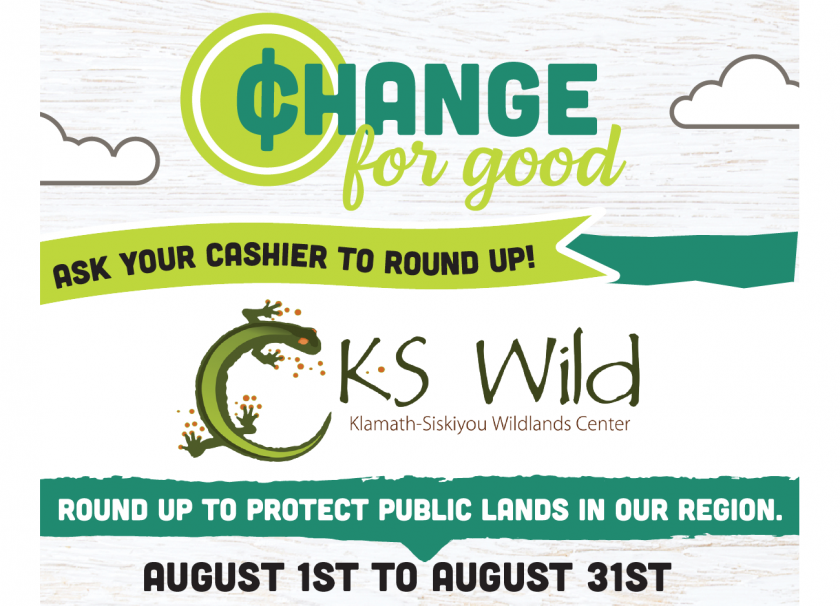
Change for Good in August: KS Wild
This month's featured organization in the new Change for Good register round-up program is KS Wild (short for Klamath-Siskiyou Wildlands Center).
KS Wild is one of the most prominent land conservation and stewardship organizations in the region. They focus on the Klamath-Siskiyou region, which includes large swaths of Southern Oregon and Northern California (inculding the Cascade-Siskiyou National Monument). This bioregion is one of the most diverse in the country, home to populations of wolves, rare plants and unique geographic formations.
KS Wild is also the parent organization of Rogue Riverkeeper, an advocacy group for local waterways and member of the international Waterkeeper Alliance.
Below are many of the programs that KS Wild works on - and some campaigns you can take action on. And put KS Wild's annual dinner & auction on your calendar for September:
Join KS Wild's 2020 Annual Dinner & Auction: At Home in the Wild
Silent Online Auction: open bidding September 21st - 25th
Live Online Event: September 26th, 6:30-8pm
More information here: https://www.kswild.org/annual-dinner-2020
Forests:
ForestWatch monitors and influences public land management across seven forest districts and two federal agencies, across the 8 million acres of public lands in the Klamath-Siskiyou region of southwestern Oregon and northwestern California. It is at the heart of KS Wild's conservation mission and advocacy.
Learn more here.
Climate:
KS Wild’s Climate Program engages policy makers and land managers at the local, state, and federal levels to take bold action to prevent the worst impacts of climate change, while also advancing on-the-ground projects that prepare our region for coming changes.
Learn more here.
Waterways:
KS Wild protects rivers and their fish by opposing projects that harm salmon and water quality while advocating for actions that help restore riparian health. Along with our Rogue Riverkeeper program, KS Wild works to retain streamside forest canopy cover, prevent destructive in-stream mining activities, and reduce the impact of poorly maintained logging roads on streams and creeks are continuing priorities.
Learn more here.
Wildlife:
The forests, wildlands, and rivers of the Klamath-Siskiyou provide refuge for a remarkable variety of wildlife. By preventing the logging of our old-growth forests we are protecting many species, but especially sensitive, at-risk species. KS Wild also collaborates with our conservation allies to petition the US Fish and Wildlife service to list at-risk species as threatened or endangered under the Endangered Species Act including the Siskiyou Mountain Salamander, Pacific Fisher, Wolverine, and Lamprey.
Learn more here.
Stewardship:
As part of our mission to protect wild places, roadless areas, wildlife habitat, and watersheds, KS Wild collaborates with agencies and community members to restore natural areas through land stewardship projects. Public Lands and You (PLAY) is our volunteer-based stewardship program that protects important wildlife and botanical habitat from further degradation on public lands. Many of these areas are threatened by unauthorized off-road vehicle use, cattle grazing, and irresponsible recreation.
Learn more here.
Specific Campaigns & Actions:
Monitor Grazing
For decades the Klamath National Forest has authorized and encouraged extensive grazing of the Siskiyou Crest that damages meadows and springs in the backcountry. The Klamath National Forest believes grazing public lands for private profit trumps all other values of these special places. Every year the cows released by the Klamath on the drier south side of the Siskiyou Crest trespass onto the wet meadows and headwater streams on the north side of the Siskiyou Crest in the Rogue River Siskiyou National Forest. The private cattle ranchers benefit from this trespass grazing while botanical hotspots, meadows, and watersheds pay the price. It's easy to get involved by simply documenting what you see during hikes in sensitive areas. Click here for our grazing manual and impact report form, which includes a how-to guide, where to go and park along the Siskiyou Crest for monitoring, and a form to submit a report if cows are evident.
Climate Executive Order
Oregon's forests are a powerful tool for carbon storage and slowing climate change. Unfortunately, we are not using the tool to its fullest potential. If we take action, Oregon's forests could make a far greater contribution to the global climate effort by storing far more carbon. Take action to demand that ODF work with the Oregon Global Warming Commission to take Oregon's Climate Executive Order seriously and reform Oregon's forest practices to store carbon, protect water quality, and prevent air and water pollution.
Take action here.
More Co-op News
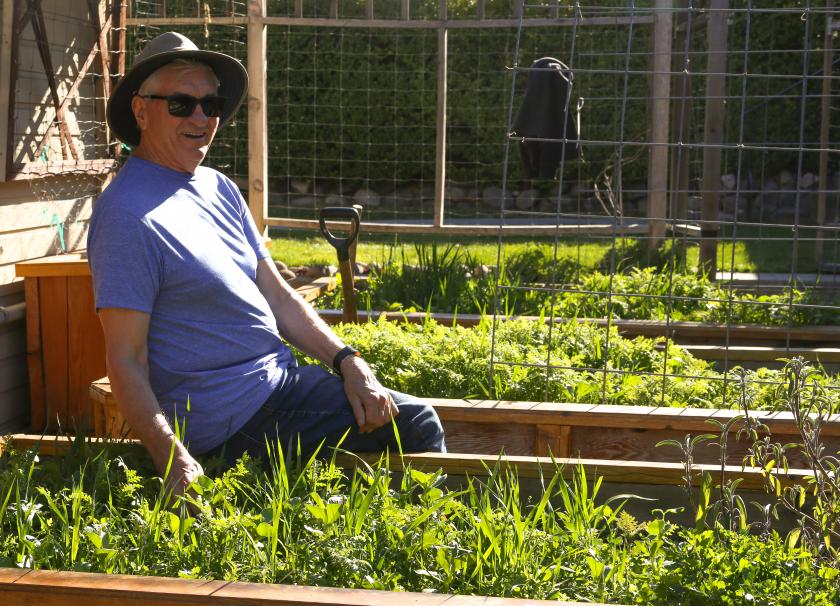
Henry in the Garden: The Pollinator Plan
By Henry Herting, Co-op garden volunteer
It's that fun time of the year when we get to plan our gardens. This year since our pollinators are taking such a hard hit, we are planning a pollinator garden.
Some plants that are considered good for pollinators are not so good fo the gardeners. They are invasive; they are weeds. Nobody likes weeds in their garden - who likes getting down on their knee pads and clawing at deep-rooted weeds growing in places where you don't want them?

Rogue To Go at the Co-op
We are excited to announce the official launch of Rogue To Go at the Ashland Food Co-op!
Rogue To Go is a reusable container pilot program. The pilot connects five participating restaurants by offering a reusable container that can be used for meals to-go and help eliminate single-use boxes. These O2GO containers are made locally in Bend, Oregon by OZZI. The bright green containers are 100% recyclable through a specialty recycler - truly zero waste!
How can you start using Rogue To Go? Check out the steps below and follow along with a walk-through video.
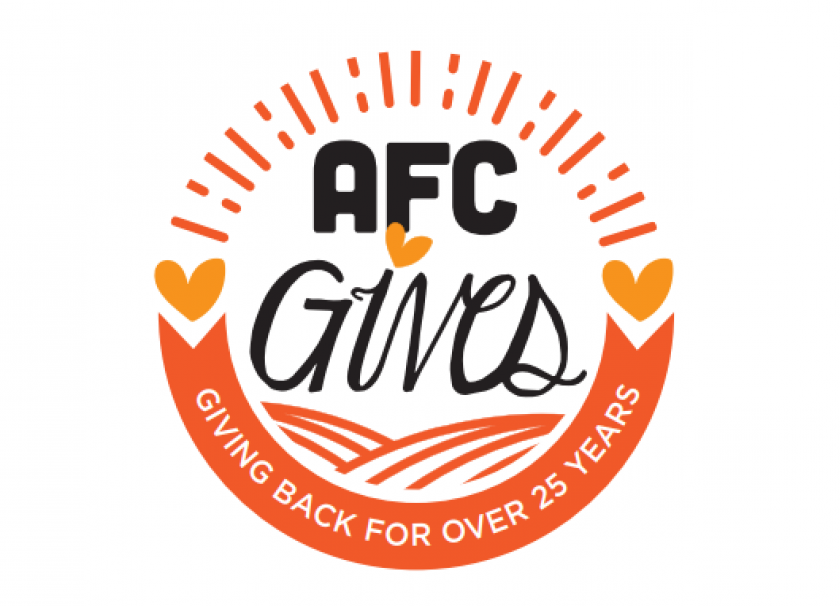
Apply for an AFC Gives community grant
For over 25 years, the Ashland Food Co-op has been re-investing in the local community by awarding grants to non-profit organizations doing important work in the Rogue Valley. Putting the seventh cooperative principle, "concern for community," into action, over $30,000 was donated in 2019 - and in 2020, there are even more opportunities for non-profits.
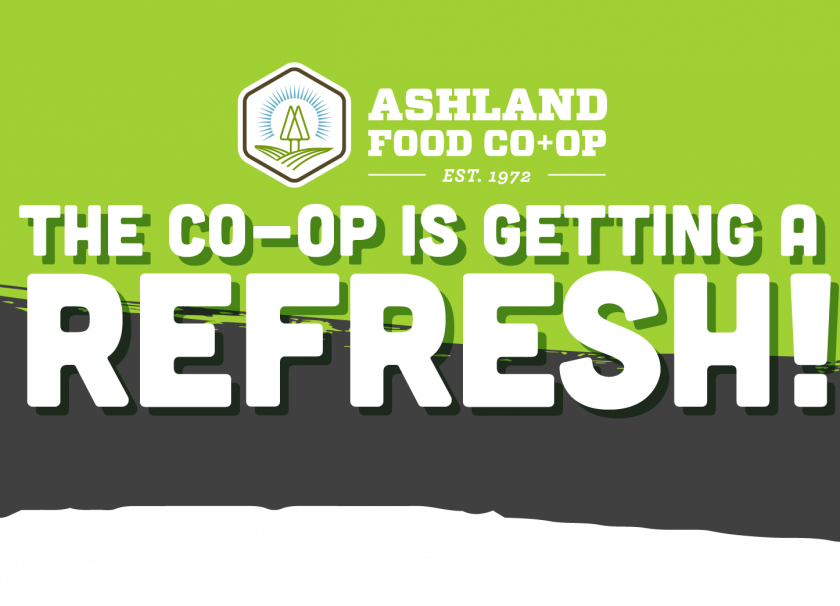
The Co-op is getting a refresh
We are giving our store a much-needed fresh coat of paint. We think you'll enjoy the changes!
When
The painting team will begin our project on February 5th, 2020 with a start time of 9pm.
Where
The entire retail store, deli serving area and interior seating area will receive a fresh new coat of paint.
Timeline
If all goes as planned, our painting project should be finished by February 20.
Will Store Hours Change?
No. We will be painting from 9pm to 5am.
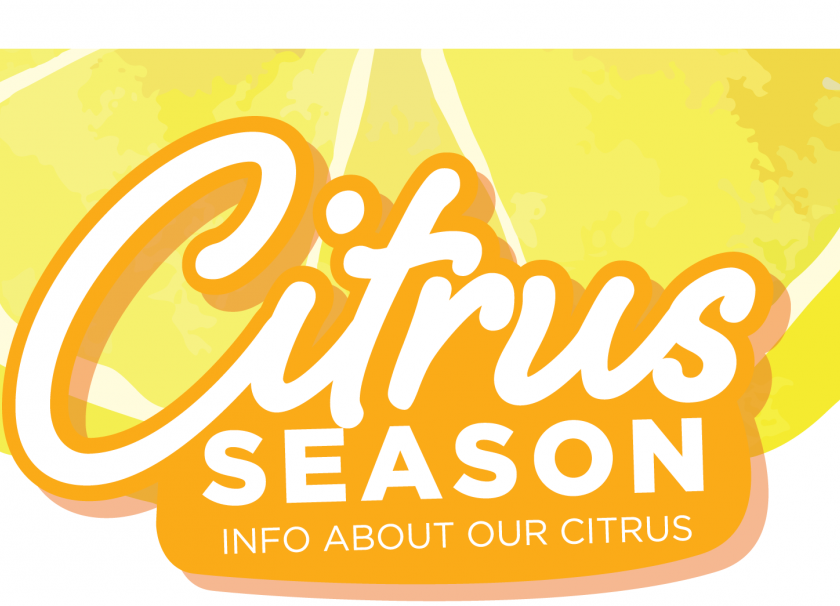
Explore citrus!
Looking to explore some new citrus varieties? Know more before you go! Check out the many types of sweet, sour and somewhere in between that you can enjoy at the Co-op! (Availability may vary due to seasonality.)
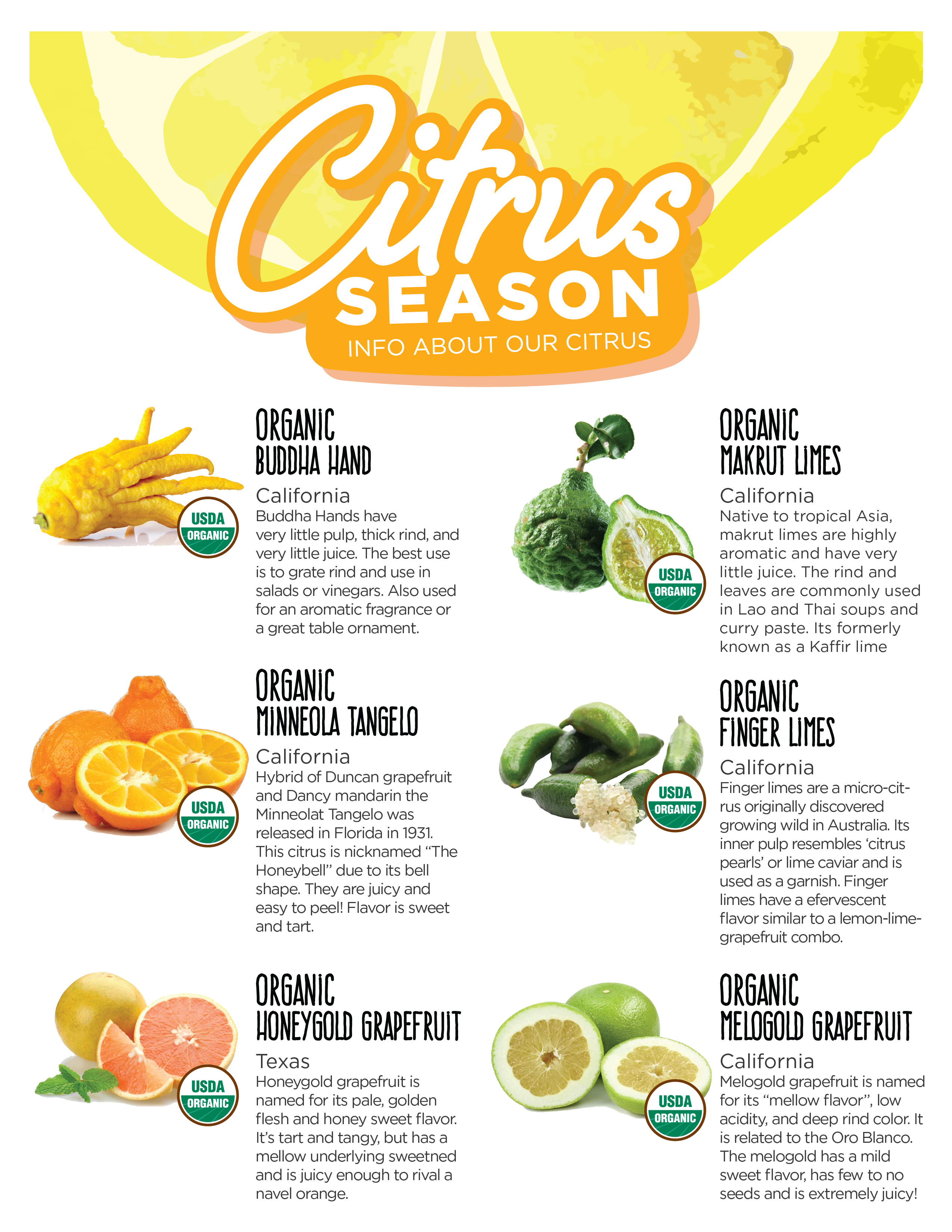
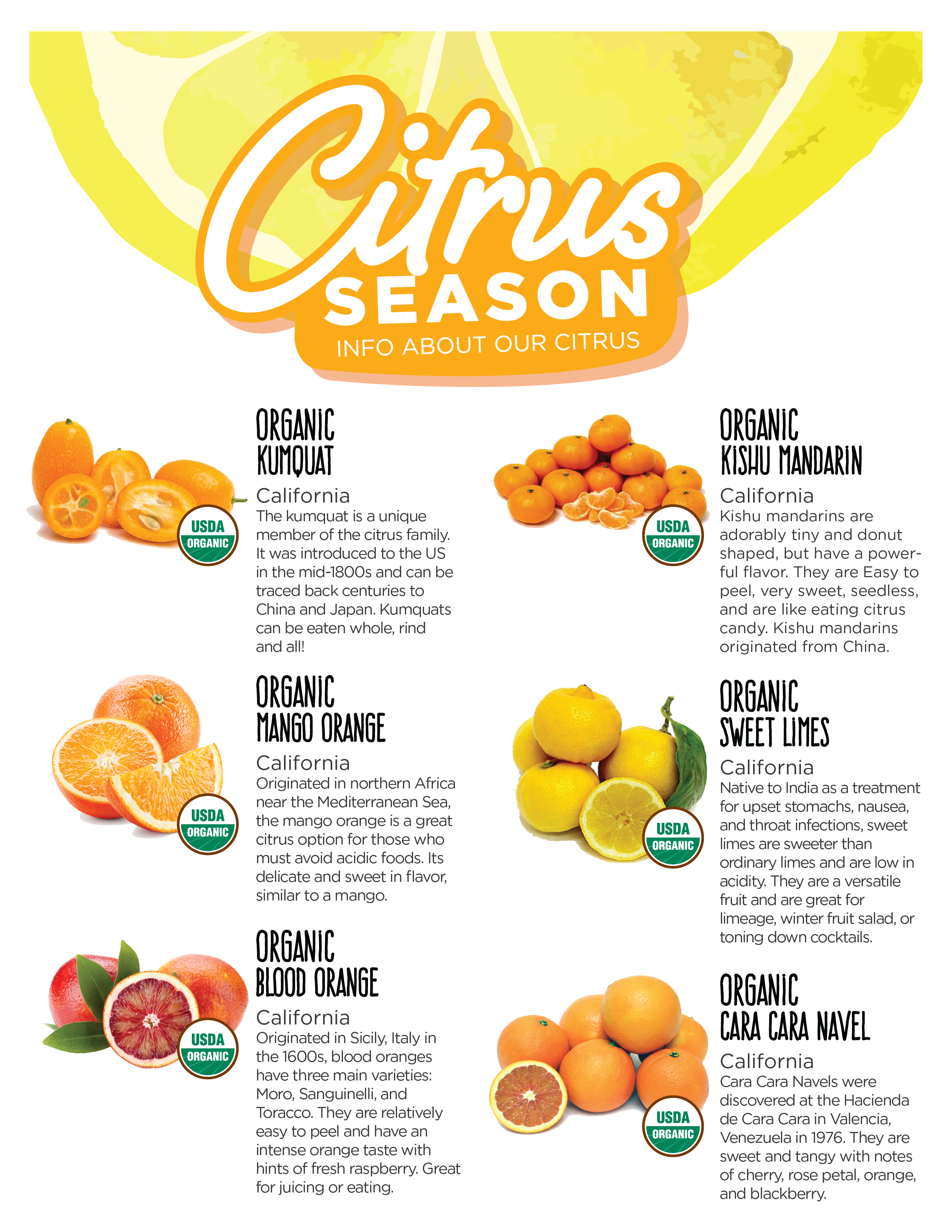

Taste for Life winter wellness giveaway
It's a month of giveaways from Taste for Life!
Giveaway #1 has finished up - so it's time for #2! This giveaway runs 1/27-2/2, so sign up below.
This package includes: NOW's Sabucus Zinc-C lozenges, Mushroom Wisdom's SX-Fraction, Bluebonnet's Stress Release formula, ChildLife's First Defense immune formula, Vitafusion's Organic Women's Multi vitamin, Quantum Health's Eye Health supplement, Kyo-Green Sprouts Blend digestion supplement, Solgar's full spectrum Curcumin supplement, and Solgar's No. 7 joint comfort supplement.

Rogue Co-ops College Scholarship
As part of the Rogue Co-ops, a group of Rogue Valley cooperative businesses that includes Ashland Food Co-op, Grange Co-op, Medford Food Co-op, and Rogue Credit Union, we're excited to offer a scholarship opportunity to local high school students planning on attending college.
The Rogue Co-ops have collectively funded a $2,000 scholarship (and Grange Co-op offers an additional eight $1,500 scholarships) for students (in public, private or home school settings) who meet the following requirements:

Become an Owner-Volunteer with the AFC Board
The AFC Board of Directors is looking for owner-volunteers for three board committees: the Owner Engagement Committee (OEC), Board Development Committee (BDC), and AFC Gives Committee.
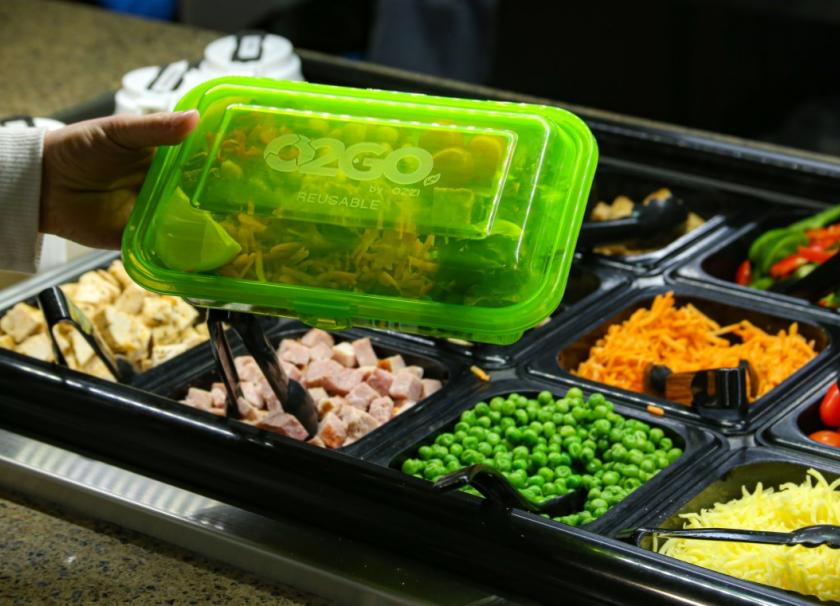
Sustainability Update: Building on a Strong Foundation
Sustainability Update
Our team has been working on many different projects throughout the year, taking great steps to fulfill our four sustainability goals. Our four goals to achieve by 2030 are: carbon neutrality, zero waste, eliminating toxic chemicals, and being a leader in our sustainable community. We look forward to our sustainable success in the upcoming decade!
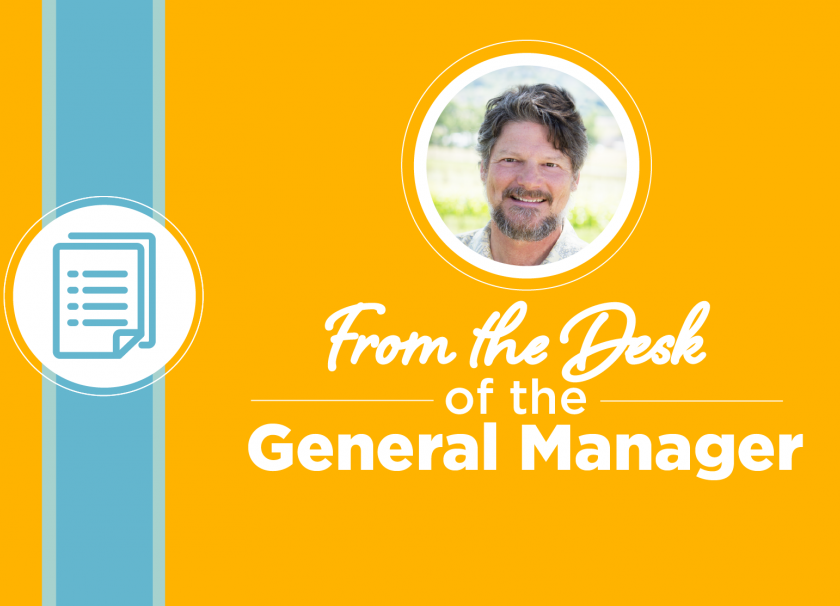
2020: A vision for the future through Co-ops and local food
As the 2010s come to a close, the “20/20” eyesight analogy couldn’t be more appropriate for the new decade. With our eye on the future, there’s clearly a sense of urgency and awareness of the unique times we’re living in: a changing climate, increases in costs of living, and the shared pressures of a globalized world.
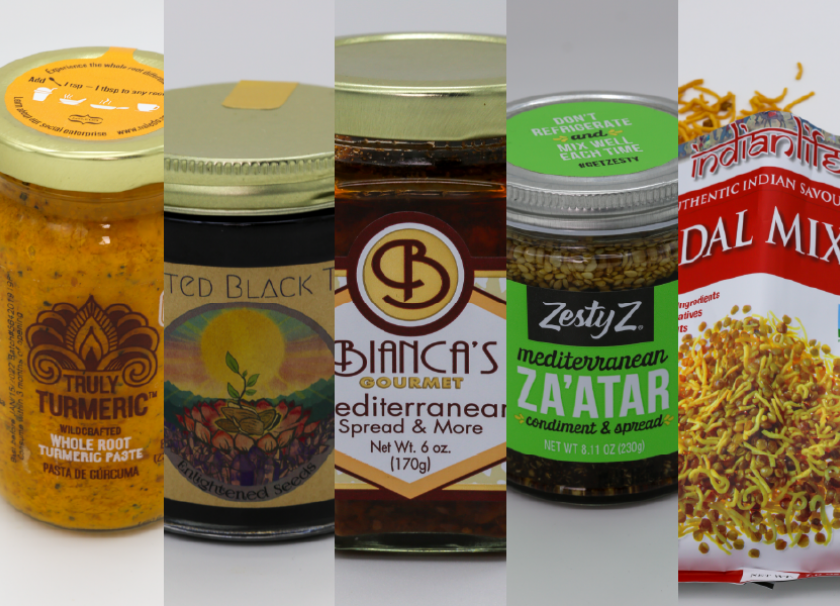
5 Items to Try: Spreads, Condiments & Snacks
It's fun trying new things! Here are five items you can find at the Co-op with a distinctly international flavor. Whether you're spreading them on some bread or naan, mixing up a salad dressing, or just want something salty and crunchy to snack on, try these out next time you want to elevate your dishes.
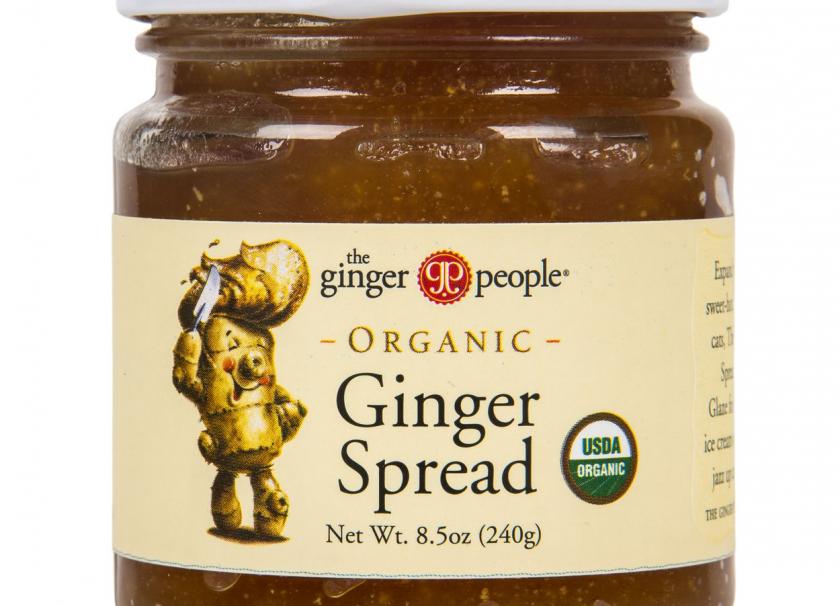
10 Ways to Enjoy: Ginger Spread
Sometimes you might come across a product at the Co-op and ask, "That looks good, but how in the heck can I use it in my cooking?" To answer that question, we picked this Ginger Spread made by The Ginger People (famous for their Gin-Gin candies). Grab a jar and try some of these unique applications in your own kitchen - or get inspired to utilize it in another way.
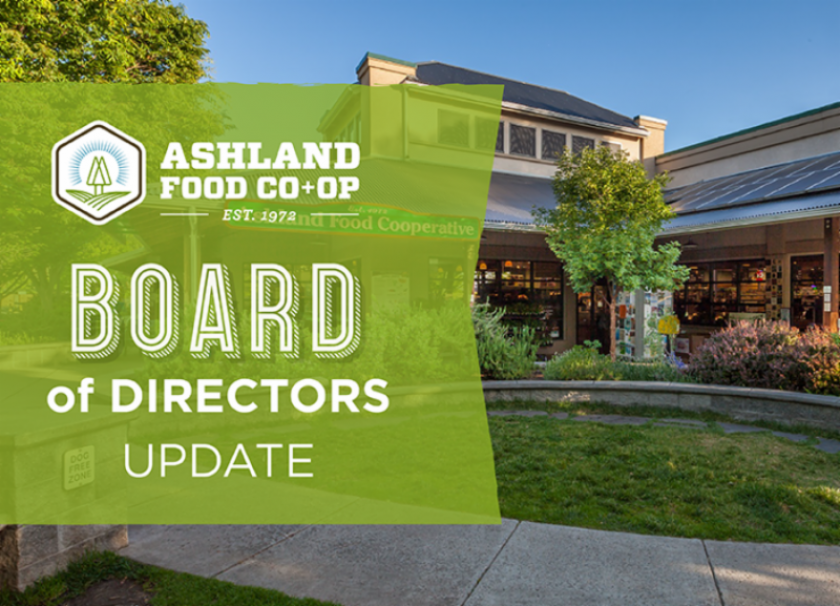
Meet Your Board: Melina Barker
Hello, Co-op members! My name is Melina Barker, and I joined the AFC Board of Directors this July. Since then, I have been busy learning about all the work the previous members have done to craft strategic goals to support the success of the AFC.
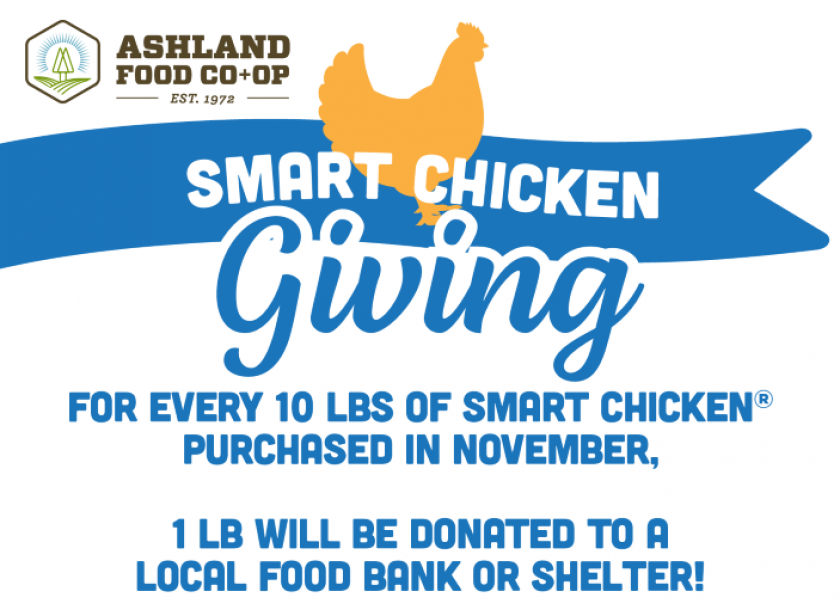
Smart Chicken® Holiday Giving in 2019
During the month of November, Co-op shoppers can nourish their own families and help fight hunger in the Rogue Valley.
Over the years, Smart Chicken® and Ashland Food Co-op have teamed up to donate thousands of pounds of chicken to ACCESS. Smart Chicken® will once again donate Smart Chicken® products based on the total volume that shoppers purchase at Ashland Food Co-op to ACCESS.
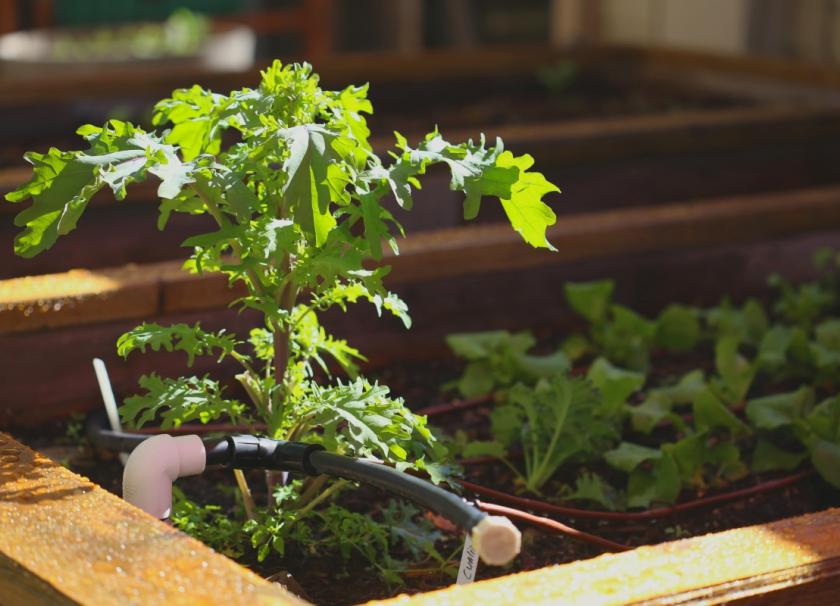
Henry in the Garden: Already Preparing for the Spring
The bane of all gardeners is powdery mildew - that white substance that collects both on the tops and bottoms of the leaves of your healthiest vegetable plants. Cucumbers and zucchini seem to be more easily affected by this scourge than many others.
